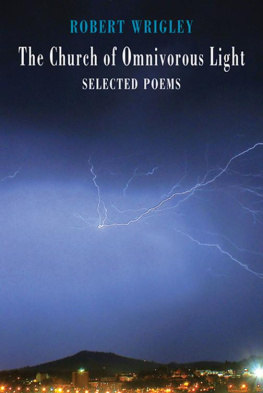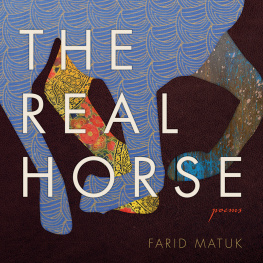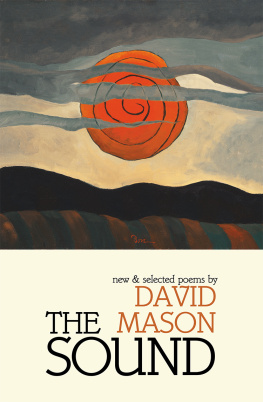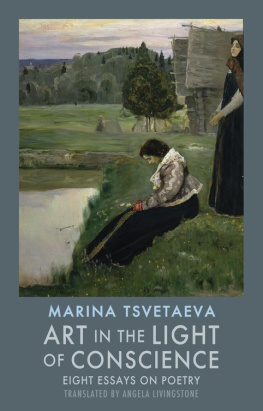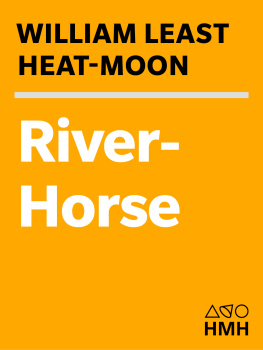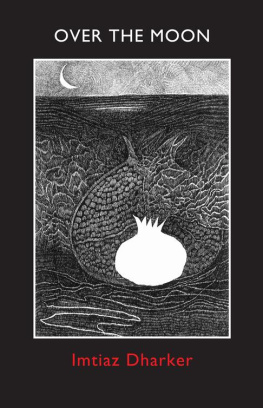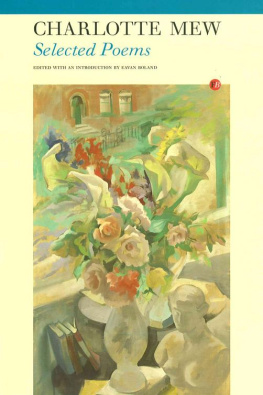Poetry Book Society Special Commendation Robert Wrigley is a poet of Americas northern Rocky Mountains. Over three decades his poetrys pervading concerns have been rural Western landscapes and humankinds place within the natural world. His most recent poems have presented a portrait of a nation, one that is a singular part of a singular planet, with an exuberant and frequently exasperating culture. In such a country, the glimpse of a horse under a full moon can be a defining moment, full of grace and a new, if not always comfortable, awareness. So it is with a saved lock of a lovers hair, the memory of a vanished glacier, or a childhood friend disappeared in war. This selection is his first UK publication and covers work from nine collections, including
.
Selected poems are taken from the following volumes:
The Sinking of Clay City (Port Townsend, WA: Copper Canyon Press, 1979),
Moon in a Mason Jar (Urbana, IL: University of Illinois Press, 1986),
What My Father Believed (Urbana, IL: University of Illinois Press, 1991),
In the Bank of Beautiful Sins (New York: Penguin Books, 1995),
Reign of Snakes (New York, Penguin Books, 1999),
Lives of the Animals (New York: Penguin Books, 2003),
Earthly Meditations: New and Selected Poems (New York: Penguin Books, 2006) and
Beautiful Country (New York: Penguin Books, 2010). All the poems in the section entitled New Poems appeared in
Earthly Meditations: New and Selected Poems (2006), except for the following: Babel first appeared in
The Georgia Review; Anatomy of Melancholy and Soundings first appeared in
Poetry; Stop and Listen first appeared in
Memorious.
CONTENTS
Every moment of light and dark is a miracle. WALT WHITMAN FROM
(1979)
Wind piled husks at the door and made us sleepy. Sacks of onion hung from the cellar beams like scrota and swayed or stood still while we did.
Two miles east an oak was impaled by a broomstick. In the west, houses gave in to vacuum, the river frothed and leaped, and catfish studied the intricacies of rafters. In the sifting yellow lamplight, a few of us kept aloft some desiccated cornsilk, a game for the lull between thunderclaps, moments before and after the only two hymns we all knew by heart. And the wind droned on, filling the air with crescendo, with an organs thousand throats.
Dear Father, Eleven days without sunlight. We go in in the black morning fog, work, and come out having missed it all.
But we begin to appreciate the dark. Its too bright outside. Faces white as carbide, even the shrill disks of real dishes. It takes a day to get used to peripheral vision again, the head light without the lamp. We rest after loading each car. In that silence the seeping gas trickles, as if we fished an underground stream for hours without hearing water.
So pain comes too, when the muscles are still. I write while the world here works. By the light of my headgear the pencil feels like a pickaxe. The moon is my sun and the sculptures on the dreamy mine walls shimmer into constellations. I have learned how not to see. Sometimes I look down shocked by the whiteness of my cuticles, glowing out of the nails like slivers from an eclipse.
They bob across this page resembling fireflies or men walking a shaft with lip lamps. And the worn shovels, the hands, hang alongside the body, coal dust healed into the calluses. They seem odd, astir in the milky bedclothes like frail, discolored spoons. Father, we are all the same. Dust fills in the oldest wrinkles, the deepest scars. You see, I am blackeninggray knuckles, ears silting over.
My eyes are as black as anthracite. The sun could ignite them and they would burn for days.
I begin again. There is so much relief, but it is geological, the whorls and contours of the skin shaded, exaggerated, as though all the body had been fingerprinted. But here, left hand ring finger bears a pale white scar beneath the wedding band, slightly green, from sulfur, or impure gold. The pupils are dilated.
Often, after the instant of death, the eyes go on reaching, glaring into the back of the lids. Always it is the same unraveling: each mans life a callous, the skin like cowhide, eyes honed on a whetstone of darkness. And where is the fat? There are only these lobes of bicep, the taut cords of sinew and tendon. Inside the bones have bent and gelled the color or creosote, heavy and hard as ironwood. In its jar a miners brain matches the gray matter of the banker. The stomach has grown strong gripping on itself, and the heart has learned all its possible rhythms: pick and pulley, shovel, crack of tie and timber.
Somewhere loved ones are waiting for explanations, a reprieve, some new reason for dying. But this is all: these two hard pods of breath, curse and cry caught in fossils. These lungs, and thousands more, seeded on the hillside like rhinestones.
FROM
(1986)
Called out of dream by the pitch and screech, I awoke to see my mothers hair set free of its pincurls, springing out into the still and hurtling air above the front seat and just as suddenly gone. The space around us twisted, and in the instant before the crash I heard the bubbling of the chickens, the homely racket they make at all speeds, signifying calm, resignation, oblivion. And I listened.
All through the slash and clatter, the rake of steel, shatter of glass, I listened, and what came was a blizzard moan in the wind, a wail of wreckage, severed hoses and lives, a storm of loose feathers, and in the final whirl approximating calm, the cluck and fracas of the birds. I crawled on hands and knees where a window should have been and rose uneven in November dusk. Wind blew a snow of down, and rows of it quivered along the shoulder. One thin stream of blood oozed, flocked in feathers. This was in the Ozarks, on a road curving miles around Missouri, and as far as I could see, no light flickered through the timber, no mail box leaned the flag of itself toward pavement, no cars seemed ever likely to come along. So I walked, circled the darkening disaster my life had come to, and cried.
I cried for my family there, knotted in the snarl of metal and glass; for the farmer, looking dead, half in and half out of his windshield; and for myself, ambling barefoot through the jeweled debris, glass slitting little blood-stars in my soles, my arm hung loose at the elbow and whispering its prophecies of pain. Around and around the tilted car and steaming truck, around the heap of exploded crates, the smears and small hunks of chicken and straw. Through an hour of loneliness and fear I walked, in the almost black of Ozark night, the moon just now burning into Missouri. Behind me, the chickens followed my lead, some fully upright, pecking the dim pavement for suet or seed, some half-hobbled by their wounds, worthless wings fluttering in the effort. The faintest light turned their feathers phosphorescent, and as I watched they came on, as though they believed me some savior, some highwayman or commando come to save them the last night of their clucking lives. This, they must have believed, was the end theyd always heard of, this the rendering more efficient than the axe, the execution more anonymous than a wringing arm.

